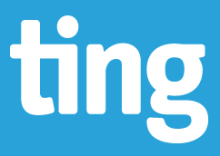"Go West, Young ISP!" Ting Moving Into Centennial, Colorado
What do Maryland’s Westminster; Sandpoint in Idaho; Holly Springs, North Carolina; Charlottesville, Virginia; and now Centennial, Colorado, all have in common? Ting's "crazy fast fiber" Internet access.
In a press release, the Toronto Internet Service Provider (ISP) announced that as of today, it is taking pre-orders to assess demand in Centennial. The results will determine if the company will take the next step and offer Fiber-to-the-Home (FTTH) Internet access to Centennial’s 107,000 residents and its local businesses. Ting estimates residential symmetrical Gigabit Internet access (1,000 Megabits per second download and upload) will cost approximately $89 per month; business subscriptions will cost about $139 per month. According to the Ting blog, they are also planning to offer a low-cost option of 5 Megabits per second (Mbps) symmetrical Internet access for $19.99 per month.
All Part Of The Plan
In March, the city released the results of a feasibility study and published its Master Plan, which included investing to expand the city’s existing network of more than 50 miles of dark fiber. Ting is the first provider to offer services via the infrastructure.
Once it is established that a sufficient demand exists for Ting’s symmetrical Gigabit Internet access, construction to specific areas of town will begin.
Mayor Pro Tem and District 4 Council Member Charles “C.J.” Whelan said:


